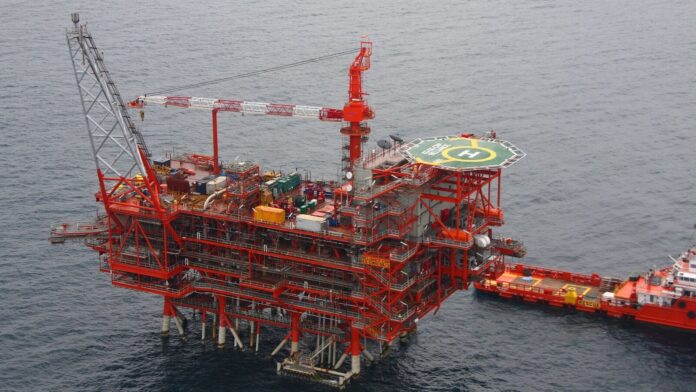In a setback for Mukesh Ambani-led Reliance Industries Ltd (RIL), the Delhi High Court’s (HC) division bench on Friday overturned an international arbitration tribunal’s ruling that had previously favoured the company in its $1.7 billion dispute with Oil and Natural Gas Corp. Ltd (ONGC) over alleged gas migration from adjoining fields.
The bench, comprising justices Rekha Palli and Saurabh Banerjee, also set aside a May 2023 single bench ruling that had upheld the 2018 arbitration award rejecting the government’s claim.
The court, in its ruling, stated: “In view of the above, we are setting aside the impugned order dated 9 May 2023, passed by the learned single judge, and the arbitral award issued by the arbitral tribunal in 2018, as it is contrary to the settled position of law. All pending applications, if any, stand disposed of, with each party bearing its own costs.”
The latest verdict marks a significant victory for the Union government in its long-running legal battle with RIL over gas migration in the Krishna-Godavari (KG) basin—an issue that has been at the centre of India’s energy exploration and production landscape for over a decade.
The ruling clears the path for the government to enforce its claim of around $1.7 billion against RIL and its foreign partners, while the company now has the option to challenge the decision before the Supreme Court.
Origins of the dispute
The roots of the dispute can be traced back to the 2000s. In April 2000, a consortium led by RIL signed a production-sharing contract (PSC) with the Union government, granting it the rights to explore and extract natural gas from the KG basin, located off the coast of Andhra Pradesh. The contract detailed the responsibilities, entitlements and revenue-sharing arrangements between the parties involved.
Between 2006 and 2007, RIL reportedly drilled four development wells and began commercial production on 1 April 2009. Its KG-D6 block is situated adjacent to ONGC’s Godavari Petroleum and Mining Lease (PML) and the KG-DWN-98/2 block. RIL holds a 60% stake in the KG-D6 block, with BP Plc owning 30% and Niko Resources holding the remaining 10%.
In July 2013, ONGC informed the Directorate General of Hydrocarbons (DGH) of evidence suggesting lateral continuity of gas pools between its fields and RIL’s block. While both companies initially agreed to appoint an independent consultant to investigate, ONGC filed a writ petition in the Delhi High Court on 15 May 2014, naming the government, the DGH and RIL in the case.
To investigate the gas migration, RIL and ONGC jointly appointed US-based consultant DeGolyer and MacNaughton (D&M). The firm’s report, submitted in November 2015, concluded that over ₹11,000 crore natural gas had migrated from ONGC’s idle fields to RIL’s KG-D6 block.
Following the report, the government set up a committee in December 2015, led by former Delhi HC chief justice A.P. Shah, to examine the issue of “unfair enrichment” and recommend compensation measures. The committee concluded that RIL should compensate the government for the gas extracted from ONGC’s fields over seven years.
Arbitration battle
In November 2015, the oil ministry issued a demand notice to RIL, BP and Niko seeking around $1.5 billion and an additional $174 million in interest.
RIL and its partners initiated arbitration proceedings in 2016. A three-member arbitration panel, led by Singapore-based arbitrator Lawrence Boo, delivered a 2:1 verdict in 2018, ruling in favour of the RIL-led consortium.
The panel concluded that the PSC did not prohibit extracting gas that migrated naturally, provided wells were drilled within the allotted boundaries. It also ordered the government to pay $8.3 million as arbitration costs.
Unhappy with the arbitration outcome, the government challenged the award in the HC, contending that it was against public policy. The government alleged that RIL had fraudulently extracted gas from ONGC’s fields without disclosure, despite being aware of the connectivity since 2003.
HC’s decisions
In May 2023, a single bench of the Delhi HC upheld the arbitration award, stating that RIL had operated within its contract area and paid the government its due share of profit petroleum. Justice Anup Bhambhani held that the tribunal’s award did not conflict with the “public policy of India” and that RIL had not violated the public trust doctrine. The court described the non-disclosure of the 2003 D&M report as a “technical breach” with no material impact on the PSC.
The government subsequently appealed to the division bench, which has now overturned the single bench ruling and set aside the arbitration award, culminating in Friday’s ruling.
Catch all the Business News , Corporate news , Breaking News Events and Latest News Updates on Live Mint. Download The Mint News App to get Daily Market Updates.
MoreLess
#Delhi #High #Court #overturns #arbitration #award #favouring #Reliance #gas #migration #dispute
